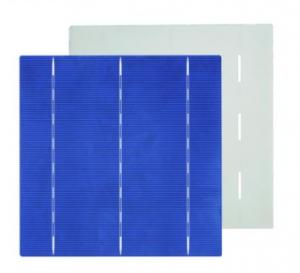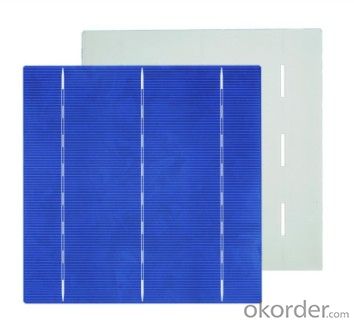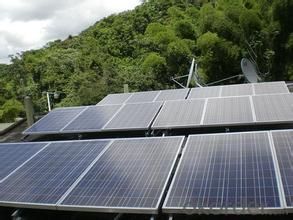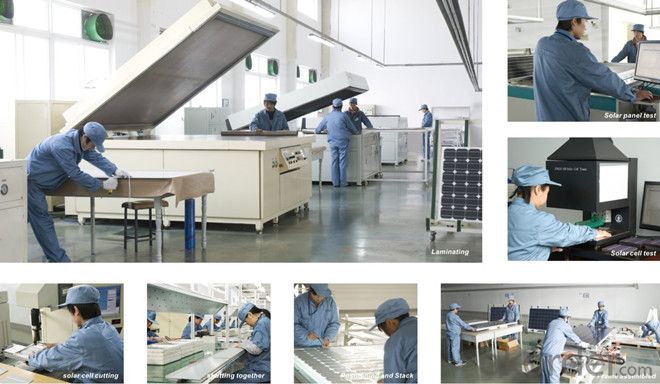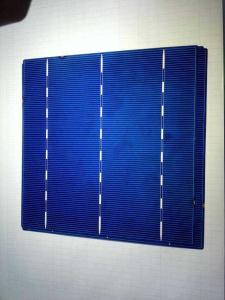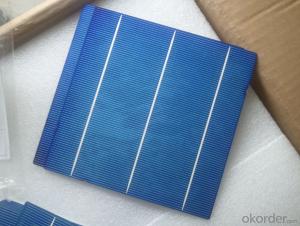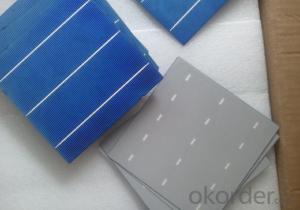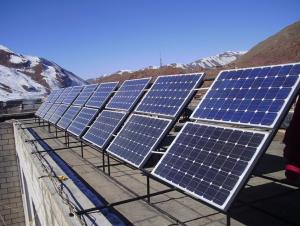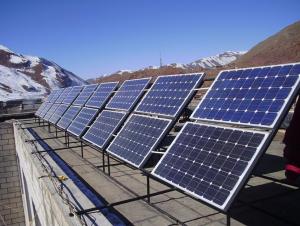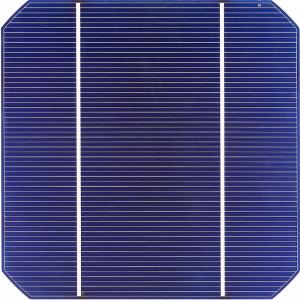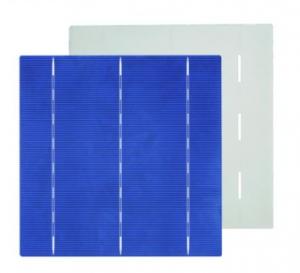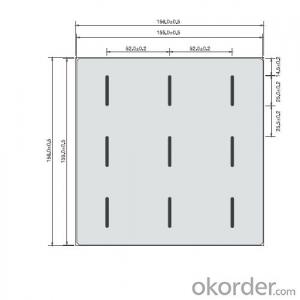Solar Cells Wholesale China - Three BB Poly Solar Cell with A Grade and Anti-PID
- Loading Port:
- Shanghai
- Payment Terms:
- TT or LC
- Min Order Qty:
- 10000 watt
- Supply Capability:
- 1000000 watt/month
OKorder Service Pledge
OKorder Financial Service
You Might Also Like
Brief Introduction of Solar Cells
A solar cell, is an electrical device that converts the energy of light directly into electricity by the photovoltaic effect, which is a physical and chemical phenomenon. It is a form of photoelectric cell, defined as a device whose electrical characteristics, such as current, voltage, or resistance, vary when exposed to light. Solar cells are the building blocks of photovoltaic modules, otherwise known as solar panels.
Advantage of Polycrystalline Solar Cells
Tire-1 Solar Cells’ Manufacturer Quality Guarantee. With a complete and sophisticated quality government system, our Quality Management have arrived world’s leading place. Customer can receive Tire-1 Cells Maker’s Quality Standard Products.
Trusted Warranty. We can supply trusted after-sales service to our customer. If our cells are found not in conformity to the specification of manufacturer, or should the inspected quantity found in shortage, or should the packing found damaged, the buyer has the right to claim to the seller. The claim, if any, should be presented to seller within 30 days after cargo's arrival date to the port, together with related inspection report and photos issued and provided by a reputable independent surveyor such as SGS.
Factory Picture of Solar Cells
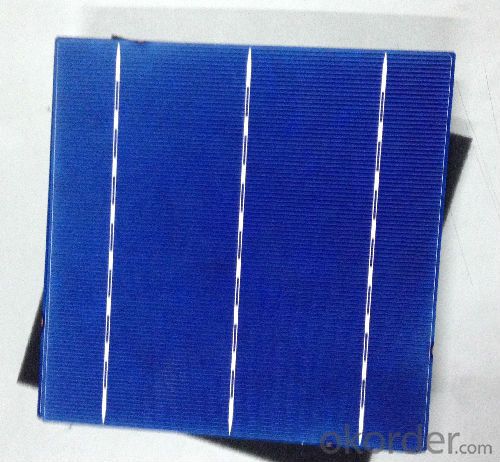
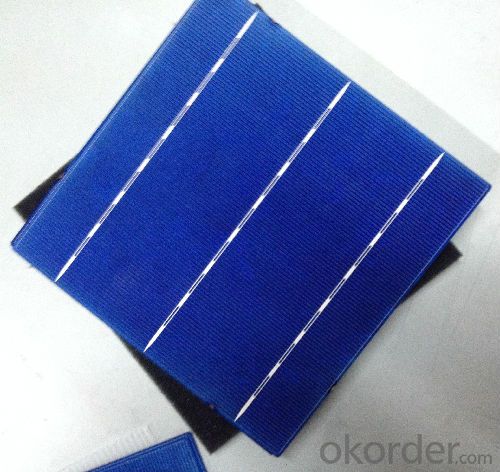
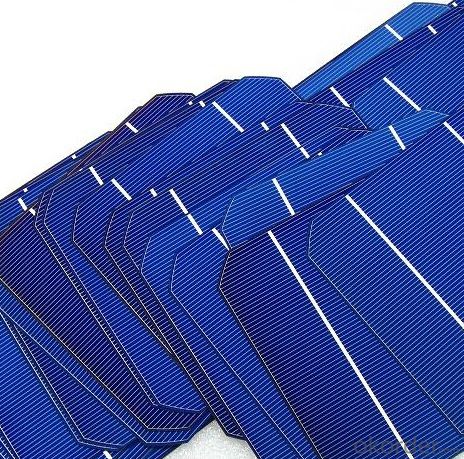
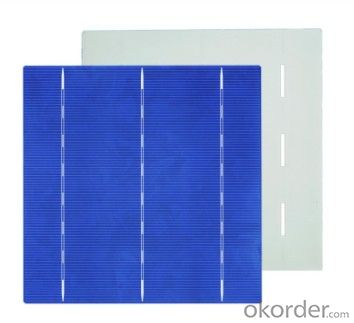
FAQ
We have organized several common questions for our clients,may help you sincerely:
What’s price per watt?
A: It’s depends on the quantity, delivery date and payment terms of the order. We can talk further about the detail price issue. Our products is high quality with lower price level.
Can you tell me the parameter of your solar cells?
We have different series of cells with different power output, both from c-si to a-si. Please take our specification sheet for your reference.
How do you pack your products?
We have rich experience on how to pack the panels to make sure the safety on shipment when it arrives at the destination.
- Q: How do solar cells perform in regions with frequent thunderstorms?
- Solar cells are not directly affected by thunderstorms themselves. However, frequent thunderstorms in a region can lead to reduced sunlight exposure, which may affect the overall performance of solar cells.
- Q: Can solar cells be used in space satellites?
- Yes, solar cells can be used in space satellites. In fact, they are the most common source of power for satellites in space. Solar cells convert sunlight directly into electricity, making them an ideal and efficient source of renewable energy in the space environment.
- Q: What is the cost of producing a solar cell?
- The cost of producing a solar cell can vary depending on various factors such as the type and quality of materials used, manufacturing processes, scale of production, and market conditions. However, advancements in technology and economies of scale have significantly reduced the cost of solar cell production over the years. On average, the cost of producing a solar cell can range from a few cents to a few dollars per watt.
- Q: Can solar cells be used on mobile devices?
- Yes, solar cells can be used on mobile devices. There are already various portable solar chargers available in the market that can be connected to mobile devices to generate and store energy from sunlight. Additionally, there are also some mobile devices that come with built-in solar panels to directly convert solar energy into power for charging.
- Q: How do solar cells handle temperature fluctuations?
- Solar cells are designed to handle temperature fluctuations by incorporating materials that can withstand high temperatures. They are also equipped with cooling mechanisms to dissipate excess heat and maintain optimal operating temperatures. Additionally, solar cells are designed to minimize the impact of temperature changes on their performance by employing temperature coefficients that adjust the electrical output accordingly.
- Q: How do solar cells contribute to reducing carbon emissions?
- Solar cells contribute to reducing carbon emissions by converting sunlight directly into electricity without producing any greenhouse gases. This renewable energy source allows us to generate clean electricity, replacing the need for fossil fuel-based power generation that emits significant amounts of carbon dioxide and other pollutants. By adopting solar cells, we can reduce our dependence on fossil fuels and mitigate the harmful effects of carbon emissions on the environment and climate change.
- Q: Can solar cells be used in off-grid applications?
- Yes, solar cells can be used in off-grid applications. Off-grid applications refer to situations where there is no access to the traditional electricity grid. Solar cells, also known as photovoltaic cells, convert sunlight directly into electricity, making them a reliable source of power for off-grid applications. They can be used to generate electricity for various purposes, such as powering homes, buildings, or remote installations in areas without access to the grid.
- Q: What happens to excess electricity generated by solar cells?
- Excess electricity generated by solar cells can be stored in batteries for later use, or it can be fed back into the grid to be used by other consumers.
- Q: Can solar cells be used for powering agricultural irrigation systems?
- Yes, solar cells can be used for powering agricultural irrigation systems. Solar-powered irrigation systems use photovoltaic cells to convert sunlight into electricity, which can then be used to power pumps and other equipment needed for irrigation. This sustainable and renewable energy source is particularly beneficial for remote areas with limited access to electricity grids.
- Q: What is the role of surge protectors in solar cell systems?
- The role of surge protectors in solar cell systems is to protect the sensitive electronic components, such as inverters and charge controllers, from power surges and voltage spikes that can occur due to lightning strikes, grid fluctuations, or other electrical disturbances. Surge protectors help to minimize the risk of equipment damage and ensure the long-term reliability and efficiency of the solar cell system.
Send your message to us
Solar Cells Wholesale China - Three BB Poly Solar Cell with A Grade and Anti-PID
- Loading Port:
- Shanghai
- Payment Terms:
- TT or LC
- Min Order Qty:
- 10000 watt
- Supply Capability:
- 1000000 watt/month
OKorder Service Pledge
OKorder Financial Service
Similar products
Hot products
Hot Searches
Related keywords
